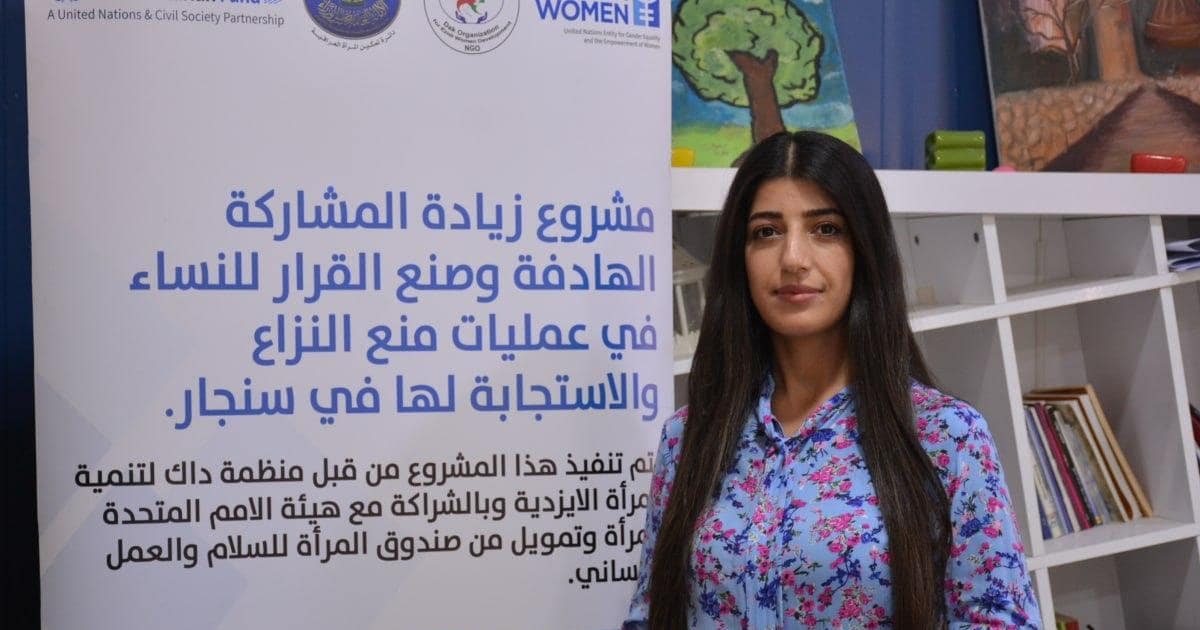Using knowledge as the key to finding Solutions
Date:

As an Iraqi woman Eman Rasho (23) has known violence and conflict most of her life. More than nine years ago her family lived in Sinjar when ISIS attacked the community and the family fled to Zakho and from there they crossed the border to Turkey.
Eman and her family stayed as refugees for a year in Turkey before returning back to Iraq where they stayed in the village of Reik Ava. The family were reluctant to return to their own village where there was a continuation of sudden air strikes, evictions and a resurgence of homelessness. “We do not want to return to our area of origin,” explained Eman “there is just too much insecurity”.
Eman’s education was severely interrupted when the family found themselves homeless and moving from one shelter to another, but she is determined to finish 6th grade. She already works as a peace mediator on the DAK team and volunteers with the non-government organisation, CARE.
“I live with my parents and nine siblings and work to help my family because of our harsh circumstances,” she said. “I took many courses to develop my skills and abilities including projects that centred on women. With my training I realised that we are never going to achieve peace without increasing women's participation and decision-making in conflict prevention and response activities in Sinjar.” The courses are funded by the Women’s Peace and Humanitarian Fund and facilitated through the DAK organization in collaboration with UN Women, who provide the necessary technical skills.
Throughout the years of conflict in Iraq women suffered greatly - they were subjected to physical and sexual abuse, homelessness, poverty, and lacked opportunities for education and employment. The conflict left many women widowed, compounding their struggles when they had to seek work to support the family stepping outside the norm in patriarchal Iraqi communities. Setting up the project, UN Women working with its partners and women’s groups aimed to increase and improve awareness and understanding of gender equality and women's empowerment. This is considered a first step towards behavioural change and gender integration in daily work, encouraging women to broaden their horizons and improve their skills.
"We need such important projects so we can learn and share our knowledge with other women”, continued Eman. “I gained the appropriate skills and increased my capabilities during this project. I learned how to be a social, effective, communicative woman. I am so happy that I can share my learnings with women who are interested in self-development and improving their lives. Prior to the project, we had little information on these subjects, and it was a revelation to discover what we can attain working together and passing on knowledge. I can now communicate effectively with social groups, facilitate dialogue and listen carefully to each conflicting party to help find the best solutions to their conflict”.
She concluded, “My goal is to become an advocate for women on all issues in the future. We as women, have the right to assert our rights, and are as entitled as every other citizen in Iraq to have equality.”